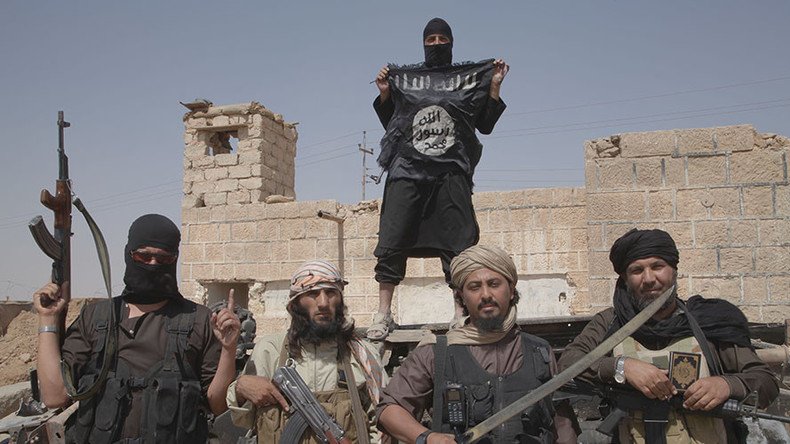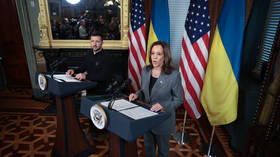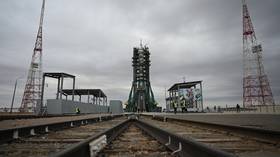US coalition spared ISIS oil production facilities in Syria – Russian MoD

The US-led international coalition did not bomb oil production facilities captured by Islamic State (IS, formerly ISIS/ISIL) militants in Syria, Russian Defense Ministry spokesman Major General Igor Konashenkov has stated.
“Miraculously, only oil fields, captured by ISIS allowing the militants to earn tens of millions of dollars every month on illegal oil sales and recruit mercenaries from all over the world, did not come under the US bombardment,” Konashenkov said.
CIA Director John Brennan stated earlier that Russia is using a “scorched-earth policy” in Syria.
“What the Russians have done in Syria in terms of some of the scorched-earth policy that they have pursued that have led to devastation and thousands upon thousands of innocent deaths, that’s not something that the United States would ever do in any of these military conflicts,” Brennan told PBS on Tuesday.
The CIA head “should have known and remembered” history, Konashenkov said, pointing out the US nuclear bombings of Japan during WW2, as well as its later military operations in Vietnam and Laos, “for which no one in the US has been punished yet.”
“I would also like to remind [John Brennan] that international wars of the past decades unleashed by the US thanks to false CIA data in Yugoslavia, Iraq, Afghanistan, and Libya have all been started, continued, and finished with a destroyed economic infrastructure of these states by the US Air Force,” Konashenkov said. It was “doubtfully a coincidence” that American companies close to the CIA and the Pentagon had “always” been among the first to receive contracts to rebuild damaged infrastructure, he added.
“John Brennan is perfectly aware of the real results of Russia’s actions in Syria. Specially for the CIA and special services alike, we announced them during the Russian Defense Ministry’s final board meeting,” Konashenkov stated on Wednesday.
Earlier in December, Russian Defense Minister Sergey Shoigu said more than 12,300 square kilometers (4,750 square miles) of territories, including almost 500 populated areas had been freed from terrorists in Syria. Since the start of Russia’s operation, its air force has conducted 71,000 strikes at terrorist infrastructure targets, eliminating 725 training camps, 405 arms factories, and 1,500 pieces of military equipment. Around 35,000 militants had been killed, Shoigu said, adding that another 9,000 had laid down their arms.
“But the most important result, attained without the current US administration (or rather, without the involvement of the CIA), together with Iran and Turkey, is an agreement with the forces of the Syrian opposition, which came into effect on December 30, to cease hostilities and prepare for negotiations in Astana on the settlement of the Syrian conflict,” he concluded.
A long-awaited nationwide ceasefire has been holding in Syria. The deal, brokered by Moscow and Ankara, was unanimously approved by the UN Security Council on Saturday. The agreement obliges around 60,000 rebel fighters, as well as the Syrian government and allied militias, to observe the ceasefire, with Russia and Turkey listed as guarantors to the deal.
On Monday, the US-led coalition admitted to “unintentionally” killing at least 188 civilians in Syria and Iraq since 2014, when the airstrikes against Islamic State began. The majority of civilian casualty reports were rejected as “non-credible.”
The US-led coalition began carrying out airstrikes against Islamic State in Iraq and Syria in 2014, without authorization from the UN Security Council and the Syrian government.
Amnesty International said in October that US-led coalition forces “must conduct thorough investigations into reports of civilian casualties from its operations [in Syria] and disclose their findings.” Eleven coalition attacks, which were investigated by the human rights group, have killed at least 300 civilians during two years of strikes, Amnesty said.
“We fear the US-led Coalition is significantly underestimating the harm caused to civilians in its operations in Syria,” Lynn Maalouf, Deputy Director for Research at Amnesty International’s Beirut regional office, said.
“Analysis of available evidence suggests that in each of these cases, Coalition forces failed to take adequate precautions to minimize harm to civilians and damage to civilian objects. Some of these attacks may constitute disproportionate or otherwise indiscriminate attacks,” she added.













